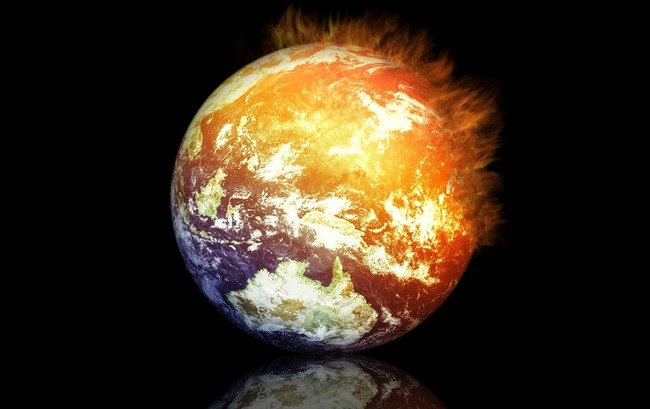Climate Change Predicted To Contribute To Future Violence

The study assumes that global temperature will increase by at least 4 degrees Fahrenheit in the next 50 years, based on information from the World Climate Research Program. Researchers also assume that human beings will do very little to adjust or alleviate such global climate change.
The conclusion of thier study is alarming—the world may see a pike in civil unrest and wars by as much as 56 percent between now and 2050, due in part to climate change. Interpersonal violence—such as murder, rape, and domestic abuse—may increase as much as by 16 percent.
The study seems to support a claim held by the United Nations, that global climate change must be dealt seriously as it contributes to world conflicts.
For example, while the immediate causes of the conflict in Darfur may have been due to an ethnic cleansing campaign, the United Nations Environment Programme (UNEP) urged people to examine other factors that may have intensified the situation—specifically environmental issues.
The UNEP states that the ongoing desertification of Sudan and the decrease in rainfall have both contributed to the conflict in Darfur by fueling the rising conflicts between farmers and herders over natural resources like pastureland and water holes.
"Look to its roots, though, and you discover a more complex dynamic," stated UN Secretary General Ban Ki-moon back in 2007. "Amid the diverse social and political causes, the Darfur conflict began as an ecological crisis, arising at least in part from climate change."
Yet some scholars find themselves doubting the new finding, feeling that the research requires more substantial studies.
Several criticisms have arose from the study. Much of the study focused on events in human history from the past century; yet, some people believe that the impact of climate on conflict may have differed across centuries.
"I would expect them to be able to point to at least a handful of recent armed conflicts where unusual fluctuations in climatic donations played a central role," said Halvard Buhaug, research director at the Peace Research Institute in Oslo, Norway.
Additionally, critics have pointed out that the research consists mainly of studying older societies, who dealt with climate change in a much different manner from modern ones, who have technological advances to help adjust to such changes in the environment.
"I count myself among the skeptics," added Patrick James, Professor of International Relations at USC. "There is no causal mechanism that can help us link directly the correlations involving heat, precipitation, and conflict. So this may be an example of spurious causation."
James also explained that in regard to water resources in the Middle East, increased tensions are not merely the effect of climate change decreasing the source of water that fuel violent conflicts, but rather they stem in part from how much access individuals have to the actual source.
"Extreme heat creates the conditions for water scarcity, but it is the latter that counts," said James, explaining that it is not necessarily the change in temperature that contributes to conflicts, but rather the larger issue of demand for water surpassing the available supply.
In addition, some also believe that the new study will do very little to move the hearts and minds of the American public to reconsider their personal lifestyles to be more environmental.
"As long as something like this research study can become sensationalized or debated on—or even cause fear—it has potential to move the American people to become more environmentally conscious," commented Anokhy Desai, a junior at USC.
Desai, however, believes that most people will not drastically change their lifestyles.
While these new findings have once again brought attention to the global climate change issue, the criticisms and skepticism may question how much of an impact the new study will have on the hearts and minds of both the American and international community.
Reach Staff Reporter Shoko Oda here.



